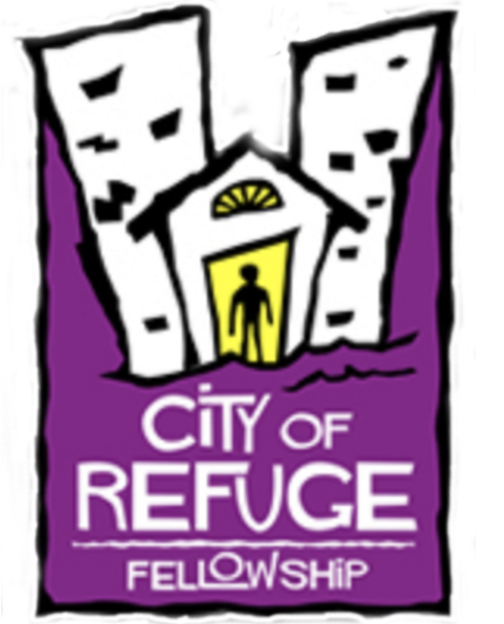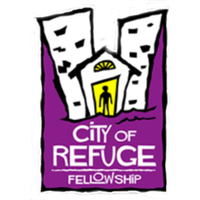This week I had a friend come and visit from out of town and he asked if I could take him to see some of historical sites in Philadelphia. I immediately agreed but didn’t have the heart to tell him that even though I have lived in the Philly area since 1991 I have never toured any of the historical sites. It turned out that his visit prompted me to do something that I should have done a long time ago. We went to Indpendence Hall, saw the Liberty Bell and went to the National Constitution Center. During one of the presentations at the Constitution Center the speaker said something that I have not been able to get out of my head: the woman giving the presentation referred to the framing of the Constitution as “the language of liberty”. As I sat in the theatre my mind drifted away from our nation to the Kingdom of God, I sat there and asked God if liberty has a language and if it does what does it sound like, I feel like He’s been answering my questions all week as I have been hearing sounds that I have never fully understood before.
In the Sermon on the Mount (Matthew 5-7) Jesus said six different times “You have heard it said . . . but I say to you . . .” He was not refuting what had been first said, He was teaching a new language. Some have called the Constitution the “language of liberty” for our nation, that may be true, but the Sermon on the Mount is the language of liberty spoken by the author of life. In these three chapters of Scripture Jesus teaches an entirely new language. He teaches blessing in things like meekness, mourning, hunger, mercy, advocacy and persecution. He offers gifts of comfort, inheriting the Kingdom of Heaven, seeing the face of God, being filled with righteousness and receiving mercy. Up until this time men had hoped for reputation, exaltation, vengeanance and the fruit of effort, in a few minutes time Jesus had turned everything upside down, restored order as it was created to be and introduced justice as God saw it. The law was given by God to reveal man’s need for a Savior, man used the law as his attempt to display his righteousness, what Jesus reveals is that man has no righteousness of his own but is free to become the righteousness of God by learning the language of liberty.
In II Corinthians 3 Paul writes “where the Spirit of the Lord is there is liberty”. God’s presence is not a by-product of liberty, liberty is only available where God is present. In this chapter Paul reveals that when Moses used to visit with God in the “tent of meeting” that his face would shine with the glory of God, so Moses used to wear a veil on his face not to hide God’s glory but to hide the fact that the glory on Moses’ face would fade away after each visit. Paul then tells us something amazing, speaking in the language of liberty Paul writes, “we all, with unveiled face . . . are being trasnformed into the same image from glory to glory, just as by the Spirit of the Lord.” The glory of God is not growing and fading as we move from experience to experience, it is constant because the glory of God is found in the Holy Spirit who dwells with us. Just as we have no need for a high priest to make a yearly sacrifice because Jesus became our High Priest and Sacrifice “once for all”, we have no need for veils to cover fading glory or hype, emotion or effort to try to recapture experiences that have passed. We are a people that have been given a new language, the language of liberty that reveals that God is with us, that the Spirit has not deparated and that our effort does not bring God near, He came near to us by His effort and He dwells with us because of His grace. When Jesus said “I am with you always, even to the end of the age” He was speaking a new language, one of eternity, of surety, of salvation and of liberty.
The Sermon on the Mount reveals a God that never leaves and creates a people that live without bondage. In Galatians 5:1 Paul wrote “It is for freedom that Christ has set us free. Stand firm, then, and do not let yourselves be burdened again by a yoke of slavery.” We were all born as slaves to sin. Everything about our lives was touched and ruined by sin. In Christ we have been set free from sin and it’s ownership, as such we have to learn to live in a new kingdom, freed from the kingdom of this world and accepted into the kingdom of God. In this kingdom there is a different King, a different law, a different plan, a different end and a different language. If I don’t learn the language of this kingdom I won’t ever be able to hear the King when He speaks, I won’t be able to understand the law which will keep me from receiving all the gifts and joys that have been prepared for me, I won’t be able to understand the plan which will leave me trying to create my own and I won’t understand the beauty of the Kingdom’s eternal outcome which will leave me clinging to my old kingdom while trying to live in the new one. Everything about living in the Kingdom of God comes down to learning a new language, the language of liberty that I believe is found in the Sermon on the Mount.
I want to pass on a challenge to you that I received from someone else this past week, read the Sermon on the Mount. As you read it, ask Jesus to show you Himself and yourself in these words. Ask Him to show you the parts that need work and the parts that you are already growing in. Asking Jesus to reveal the parts that are completely foreign to you and ask Him to teach you this new language, to teach you now to not just forgive enemies but to love and pray for them, to not just live within your means but to live without anxiety over what you might need not just tomorrow but ever. Ask Him to reveal what it means to judge and to give you the grace not to do it so that you don’t have to bear the weight of being judged yourself and ask Him to teach you not just how to understand the language when He speaks but to speak it yourself and even teach it to others. Jesus gave us this incredible language to learn, to love and to live by, I pray that during this next week that we will immerse ourselves in a new language, in a languge of liberty and a language that brings liberty so that we can not just hope for freedom but we can become those that lead the way to the Author of the language.

